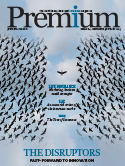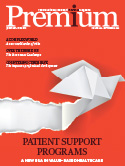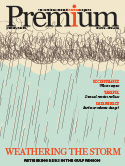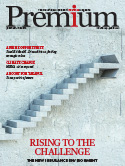Lloyd’s: Failure of cloud to cost USD15 bn
Lloyd’s in partnership with AIR Worldwide, recently launched a new report, Cloud Down – The impacts on the US economy, which analyses the financial impact of the failure of a leading cloud provider in the US.
The report analyses losses for 12.4 million US organisations and proposes an alternative approach to help insurers model these risks, which are typically harder to assess than other perils like natural disasters due to the complex and highly interconnected nature of the digital world.
In the report, it was found that companies outside of the Fortune 1000 – who are more likely to use cloud provider services – would carry a larger share of the economic and insurance losses than Fortune 1000 companies. However, the biggest 1000 companies in the US would still carry 38 percent of economic losses.
Key report findings include: An extreme cyber incident that takes a top cloud provider offline in the US for three to six days would result in economic losses of USD15 billion and up to USD3 billion in insured losses.
If a top cloud provider went down, manufacturing would see direct economic losses of USD8.6 billion; wholesale and retail trade sectors would see economic losses of USD3.6 billion; information sectors would see economic losses of USD847 million; finance and insurance sectors would see economic losses of USD447 million; and transportation and warehousing sectors would see economic losses of USD439 million.
Trevor Maynard, head of Innovation at Lloyd’s, said: “This report provides a detailed picture of the costs to the US economy as a result of a cloud service provider failure. Clouds can fail or be brought down in many ways – ranging from malicious attacks by terrorists to lighting strikes, flooding or simply a mundane error by an employee. Whatever the cause, it is important for businesses to quantify the risks they are exposed to as failure to do so will not only lead to financial losses but also potentially loss of
customers and reputation.”





































